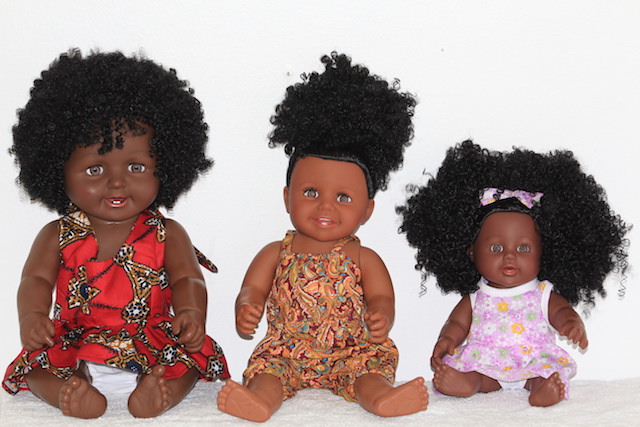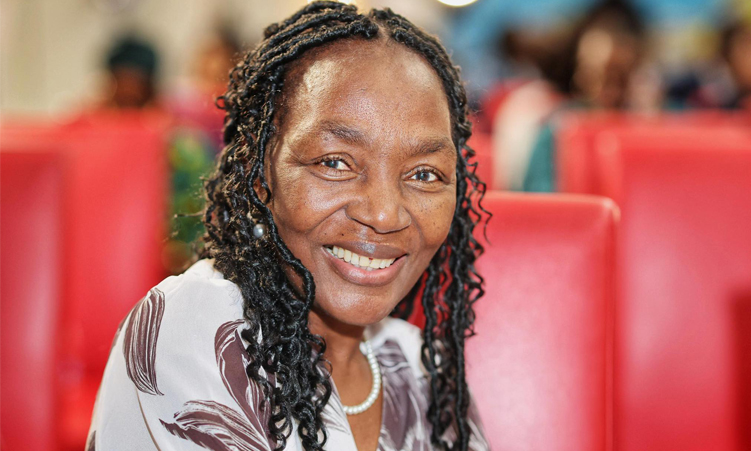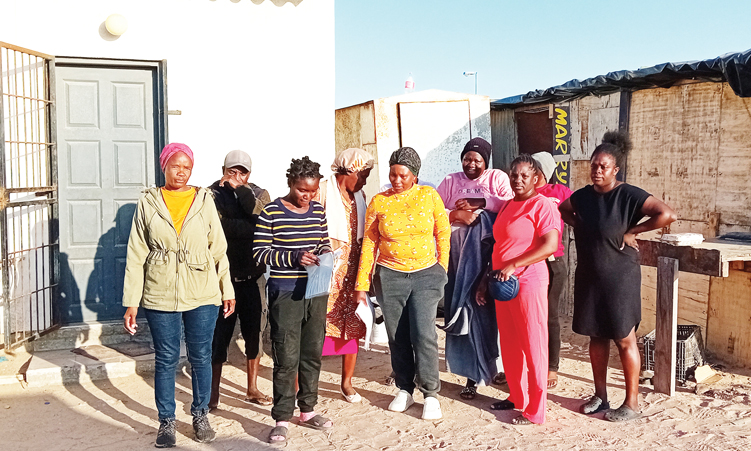WHEN Sandra Matuire and Laimi Elago decided to make dolls for girl-children, they did not just have any doll in mind, but a black doll.
They wanted a doll which black girls can relate to – dark-skinned, with an Afro. The two mothers say they got the idea after visiting several toy shops in Windhoek, only to discover that there were no dolls that had their daughters’ skin colour and hair texture. The two business partners then embarked on a mission to manufacture black dolls, and the Lolo Doll was born in Windhoek last month.
The dolls have since found their way into many Namibian homes, and have become a hit with both mothers and daughters.
“One of us deals with natural [African] hair as we both have daughters, aged 17 and 4, who at some point struggle to understand how they can be so different from their peers’ hair and skin. The fact that in every shop you go into you can never find such a doll [black], also inspired us that there is a need in the market for black dolls,” explains Elago.
After thorough research, they approached a manufacturing company in China which moulds white dolls, and explained their idea. The company (name withheld) had once tried to manufacture a black doll, but claimed that there was no market for them, Elago adds. It was thus not easy to convince the company that there is a market in Africa.
“We did not want to make a lot at first because our finances did not allow us to do a bulk order. We started from our own pockets. Starting off was a challenge financially. We had the idea and the market, but no money”.
“We also had to outsource because we could not afford to buy the doll-moulding machines as they are so expensive, and we knew this would be the cheapest way of doing it. So, the manufacturer understood our desire, and made it for us. When we got it, Lolo Doll was started,” beams Elago.
They design the dolls themselves, and instruct the manufacturing company to mould them according to their design and taste.
The Lolo Doll comes in three sizes, being small, which is 30cm at a cost of N$350; medium, which is 45cm, at a cost of N$450; and large, which is 50cm, almost the size of a newborn baby, for N$650.
The partners have already sold more than 40 dolls up to date, with orders coming from as far as South Africa, Austria and the United Kingdom.
Windhoek-based mother Anthea Mans bought three Lolo Dolls for her daughters recently.
”I purchased my first three dolls this month, and it was a great transaction from beginning to finish. Five stars go to quality, design and originality. The girls were over the moon with having a little girl [doll] that they could relate to in every form, from skin colour to hair texture. Child development is exceptionally important in a country where the less fortunate do not always have access to toys like these. I am grateful that Lolo Doll is able to change these little girls’ lives,” Mans notes.
Wendy Kausiona, who is also from Windhoek, bought one for her niece.
”I bought the Lolo Doll for my niece, and she was ecstatic when she first laid eyes on it. She loves it so much,” she adds.
The dolls are on sale at Sam’s Hobbies and Toys in Klein Windhoek, while others can be ordered from the partners.
Matuire and Elago say they hope to have the Lolo Dolls distributed in many other shops in Namibia, and plans are underway to soon manufacture the dolls in the country.
Stay informed with The Namibian – your source for credible journalism. Get in-depth reporting and opinions for
only N$85 a month. Invest in journalism, invest in democracy –
Subscribe Now!










